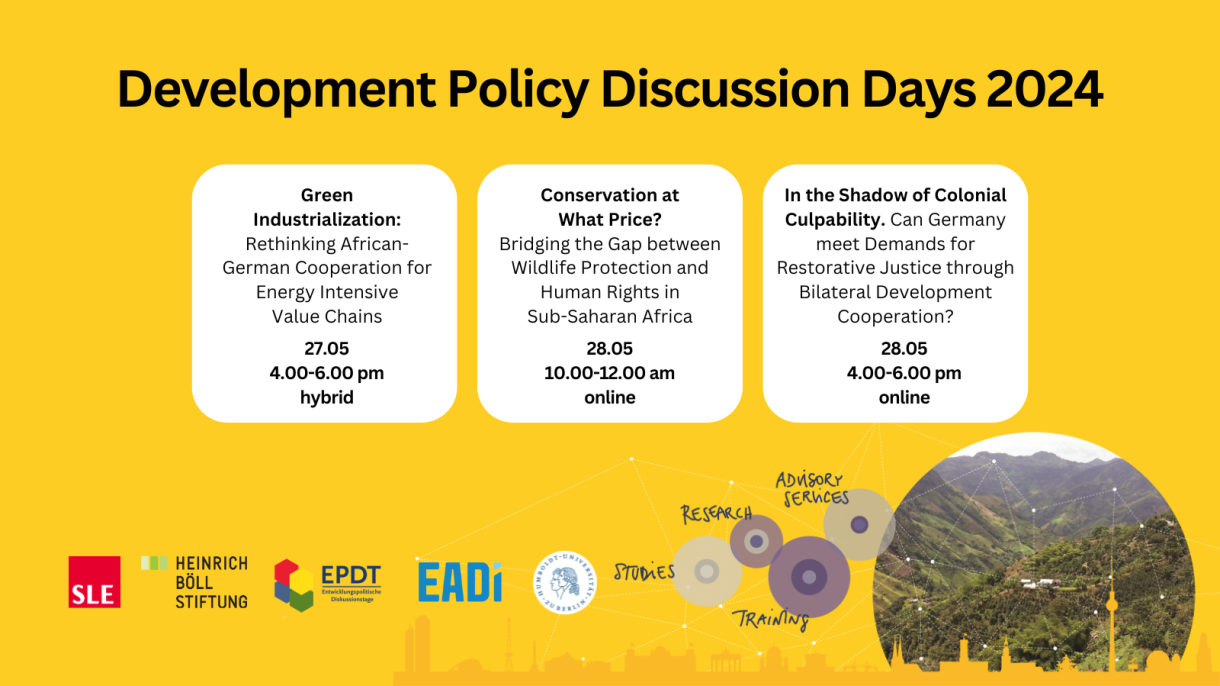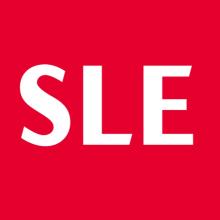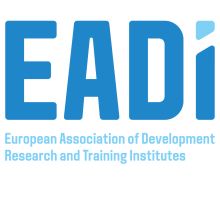
Discussion series
- Monday, 27. May 2024 4:00 pm – 6:00 pm Save in my calendar
- Tuesday, 28. May 2024 10:00 am – 12:00 pm Save in my calendar
- Tuesday, 28. May 2024 4:00 pm – 6:00 pm Save in my calendar Save all dates in my calendar
Development Policy Discussion Days 2024
Three-part annual series of events
The Centre for Rural Development (SLE) and the Heinrich Böll Foundation have been organizing the Development Policy Discussion Days (EPDT) since 2002 as part of a postgraduate programme. The SLE participants prepare the content of the three panel discussions and moderate the events.
Programme:
27.05.2024, 04.00-06.00pm (CEST) - hybrid (Heinrich-Böll-Foundation & Online)
Co-Host: EADI (European Association of Development Research and Training Institutes)
Green Industrialisation: Rethinking African-German Cooperation for Energy Intensive Value Chains [DE/ENG]
In view of climate change, current economic paradigms need to be rethought. A path towards climate-neutral economies is being discussed under the heading of green industrialization. For example, for contemporary infrastructure, steel facilitates the construction of sustainable and resilient buildings, transportation and energy networks. In Germany, nearly 70% of exports comprise steel-intensive products, yet the country's steel production heavily relies on fossil fuels. Consequently, this significantly contributes to carbon emissions and environmental degradation.
One strategy for tackling global environmental concerns and promoting economic growth in African countries is to relocate specific segments of the steel and other energy intensive value chains to African countries. These nations could leverage their competitive advantage in utilizing renewable energy sources, thus making energy intensive production more sustainable. This would also create green jobs, especially for the young and rapidly growing workforce, thereby decreasing global greenhouse gas emissions and operating costs for the entire sector.
Considering the interests of the various stakeholders entails complex questions about opportunities and risks, which will be discussed in the panel.
- Which opportunities would come with the promotion of green industrialisation in African countries, for example through the relocation of energy intensive value chains?
- Is the transformation feasible and what would be necessary technical, political and social preconditions?
- What would be the social, economic and environmental impacts from a German and African point of view?
With:
- Rainer Baake, Special representative of the Federal Ministry for Economic Affairs and Climate Protection for German-Namibian climate and energy cooperation
- Jack Kimani, Founding CEO of the Climate Action Platform for Africa (CAP-A)
- Meike Schulze, Researcher SWP
28.05.2024, 10.00-12.00am (CEST) - online
Conservation at what price? Bridging the gap between wildlife protection and human rights in sub-Saharan Africa [DE/ENG]
After decades of dramatic decline, the population of some flagship species has slightly increased in sub-Saharan African countries. In this region of high biodiversity significance, wildlife protection constitutes a main leverage for local economic development through wildlife-based tourism. Further, it contributes to meeting the 2030 targets of the Convention on Biological Diversity. In this context, international donors and NGOs are largely financing and implementing wildlife conservation measures.
However, as nature reserves are expanding and being increasingly protected, they sometimes come with the risk of land use conflicts and human rights violations against indigenous people and local communities. While profits are being generated, local communities often benefit little. Instead, they are confronted with eviction and the growing militarization of conservation.
Against this backdrop, the following questions arise:
- What are the economic, social as well as environmental costs and benefits of current conservation strategies?
- What role does German international cooperation play in reinforcing or preventing local land use conflicts?
- How can ownership over nature conservation be encouraged among the indigenous peoples and local communities (IPLC)?
With:
- Joseph Moses Oleshangay, Human rights activist & lawyer, Maasai, winner of the Weimar Human Rights Award 2023
- James Isiche, Director Africa, International Fund for Animal Welfare (IFAW)
- Karin Ulmer, brussels-based independent consultant/researcher
28.05.2024, 04.00-06.00pm (CEST) - online
In the shadow of colonial culpability - Can Germany meet demands for Restorative Justice through Bilateral Development Cooperation? [DE/ENG]
Activists and descendants of those affected by colonial violence persistently advocate for restorative justice. In addition to an apology, they are calling for concrete measures to alleviate the consequences of past atrocities that can still be felt today. Germany is also confronted with such demands, particularly regarding the genocide committed against the Herero and Nama, Damara and San between 1904 and 1908.
After many years of dialog, government delegations from Germany and Namibia agreed on a declaration in 2021. The key points are (1) recognition of the crimes as genocide, (2) an apology (3) payments over a period of thirty years amounting to 1.1 billion euros. These are to be made available for development programs, primarily in projects in the settlement areas of the Herero and Nama.
However, the declaration has so far remained unsigned due to fierce criticism, especially from the Namibian side: some Herero and Nama representatives argued to have been sidelined from negotiations and it was further addressed that the term "reparations" was avoided and the pledged amount mirrors previous Development Cooperation contributions.
Both countries’ governments, however, stand by this declaration, arguing that the democratically elected Namibian government represents all citizens. The German government argued that reparations with all its legal implications are impossible because the Herero and Nama living today are not direct genocide victims. These conflicting standpoints raise the questions:
- Is restorative justice for the genocide of the Herero and Nama appropriate and possible?
- How can the pathway towards restorative justice in Namibia succeed? What can be transferred to other countries with a German colonial history?
- Is bilateral Development Cooperation the right instrument to effectively foster restorative justice?
With:
- Mbakumua Hengari, Chairperson of the Ovaherero and Ovambanderu Genocide Foundation (OGF) Mbakumua Hengari
- Philemon Mtoi, Ph.D. candidate in History at the University of Bonn; Germany-Tanzania history expert
- Ruprecht Polenz, Representative of the German Federal Government in the dialogue on the genocide of the Herero and Nama with Namibia
Cooperation: with Seminar for Rural Development at Humboldt-Universität zu Berlin and EADI.
Note: The first panel will take place hybrid at the Heinrich Böll Foundation Berlin, the other two panel events will take place exclusively digitally and will be streamed live. Further information on the events will follow shortly.
Information:
Elena Gnant
Department Globalisation and Transformation
E-Mail: gnant@boell.de
Phone: +49 171 2046231
» Participation on site
at the the Heinrich-Böll-Stiftung Conference Center, Schumannstr. 8, 10117 Berlin
Please register. Unfortunately, the number of seats is limited. Should the room capacity be exhausted, we will transmit the conference via video to other rooms. We would like to point out that there is no entitlement to a seat in the room.
» Online participation in ZOOM
The access information will be sent to you by email 24 hours and then 2 hours prior to the event.
You can use either the Zoom Client software or the app. If you are using either the Chrome or Edge browsers you will be able to participate directly via the access link. For more information on how to use Zoom, click here.
Please make sure that you are using the latest version of Zoom so that you have the necessary settings. You will need a microphone and possibly a camera for events with audience participation.
The Heinrich Böll Foundation is not liable for issues arising from the use of Zoom software. Zoom's current privacy policy can be found here.
» Livestream
Alternatively, you can follow the event via the livestream.
» To the livestream on May 27th at 04:00pm
» To the livestream on May 28th at 10:00am
» To the livestream on May 28th at 04:00pm
Our privacy policy applies.
Files
- Timezone
- hybrid (hbs Berlin & online)
- Address
-
▶ Heinrich-Böll-Stiftung, Headquarters Berlin and Online
- Language
- German
- English
- Livestream
- Watch livestream


